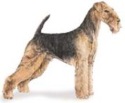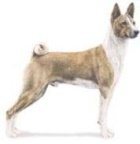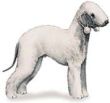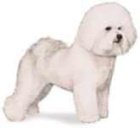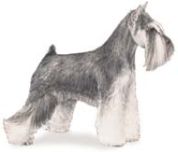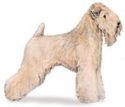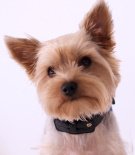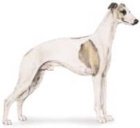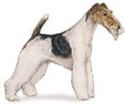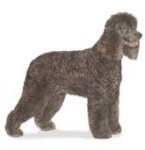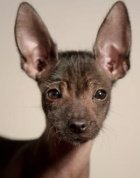Dogs That Do Not Shed
Dogs that do not shed is often an important factor when choosing a family companion. Maybe potential pet parents have allergies, but there are a few other reasons dog lovers may seek out the non-shedding breeds!
For example, some may be interested in these breeds because they're tired of vacuuming their clothes every time they get dressed to go out. Or, maybe they have previously been blessed with a heavy shedder that needed more grooming time than they expected?
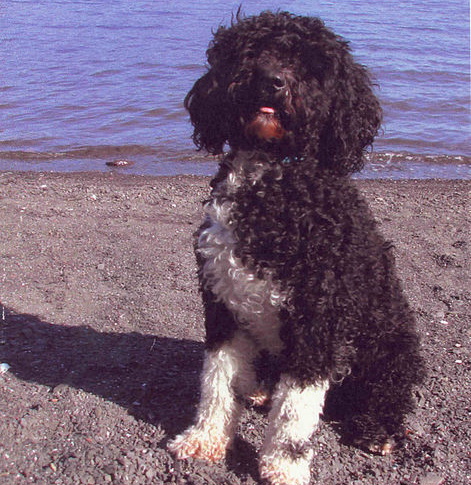 Image by Pgordon04
Image by Pgordon04Perhaps they've even been embarrassed when their guests have
picked up more than a bit of hair on their dress or suit? That happened to me once while having dinner at a friend's home and wearing black pants. Clearly a pet had been on the chair I chose at the table!
Whatever your reason, I'm gonna have to be honest and say that there really are no dogs that absolutely do not shed, at
all, but there
are preferred dogs for people with allergies.
In the meantime, one of the best defenses is the Air Purifier, linked to at the bottom on this page, that will make a big improvement in air quality of your home by removing many irritants including those related to pets.
Dogs that Don't Shed Still May Cause Allergies
Unfortunately, if allergies are your problem, even the hairless dogs may affect you, and here's why. Although dog hair may sometimes trigger an allergic response, most of the time, dander is the real culprit when it comes to human sensitivities to pets.
Dander is formed from protein molecules in a dog's saliva. When a dog licks himself, these proteins dry out - forming dander.
What is more, both people and dogs themselves can become allergic to dander.
But don't get disheartened, it's not all bad news - more frequent bathing or wiping down a dog's coat will help reduce the amount of dander that causes itching and sneezing.
Also, on another positive note, some dogs produce less dander than others. These are mostly the single coated dogs, but there are also double coated dogs to be found among the breeds whose coats produce less dander. Here are a few hypoallergenic dogs to consider:
Breeds Of Dogs That Do Not Shed
As you can see there are dogs of all sizes in this list of
hypoallergenic breeds,
otherwise known as
dogs that do not shed. You may also be surprised to note that many of them have long hair - who'd have thought? With this much variety, including
large, medium and small
sized dogs, it should be easy to find a breed acceptable to everyone in your family!
Dogs That Do Not Shed - Dispelling The Myth!
Shedding in dogs is natural and is not that much different that normal
hair loss in humans. A certain amount of
hair follicles die and fall out to make room for new hair growth. Dogs
generally shed more heavily twice a year - in the springtime and fall.
The springtime shedding leaves the coat lighter and more comfortable for
warmer
weather. In the fall, shedding makes way for a thicker winter coat to
form.
Some of the dogs that do not shed, listed above, are light shedders and
produce less dander - these are often referred to as hypoallergenic dogs
and are mainly the single-coated ones. Others, including some of the
double-coated ones may also be light shedders, but this is because they
shed inwardly.
In general the smaller dogs produce less dander simply because they have less skin area - make sense?.
When it comes to selecting one of these breeds that are considered more suitable pets for people with
allergies, there are a few questions to ask yourself.
How clean do you like your house to be?
If you're a more fastidious housekeeper, you may want to go with one of
the single-coated, light shedding breeds
so that you're not always having to drag out the vacuum. Or, you may
want to switch to hard flooring surfaces, like tile or wood, that are easier to
clean.
How much time do you want to spend grooming your dog?
Even though you may choose a breed of dog that doesn't shed a lot or produce much dander, sometimes the trade
off is that you will have to be the one removing the dead hair from his coat as well as keeping
the coat free of mats. The Yorkshire Terrier is one example. Another is the Soft-coated Wheaten Terrier.
In fact, a well-brushed and bathed dog of any breed will have far less sneeze-producing allergens to release into the air.
How much time you want to spend removing dog hair from your clothes and car seats?
In addition to hair on the couch, if you don't like to be constantly fighting a battle of hair on your clothes,
the answer is definitely to choose one of the breeds that shed minimally. The Border Terrier is one of those.
Dog Shedding Around The House Tips
Now that we've given you the bad news that all dogs shed to some degree,
on the bright side we can still do a lot to minimize the impact of this
natural occurrence.
Most people that are allergic to dog dander or dog hair can do a few simple things to cut down on
the allergen population in their home.
- Invest in the Winix 5500 air purifier - popular with pet parents. This will have a very positive effect on air quality by reducing the levels of pet dander and hair. The HEPA filter will also capture other potential irritants such as dust mites, pollen, bacteria, remnants from cleaning products, etc.
- Switching from carpet to hard wood or other hard surface floors. Carpet not only traps dander but every other kind of allergen such as dust mites, pollen etc.
- When it comes to furniture - leather or vinyl upholstery is the best choice for allergy sufferers.
- Window treatments - choose shutters or blinds to cover windows instead of drapes which are another magnet for allergens, plus harder to keep clean.
- And lastly, if you don't want to spread the shedding problem to the bedroom, sadly, you may have to ban Rover from your bed and tempt him with a comfy dog sofa bed of his own so he won't mind!
If you implement these tips, not only will the changes benefit your air quality, they will also make housekeeping a lot easier!
Image: ptgordon04 via https://commons.wikimedia.org/wiki/File:PepperPWD.JPG License: CC BY-SA 3.0
Related Pages

